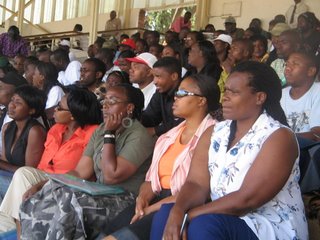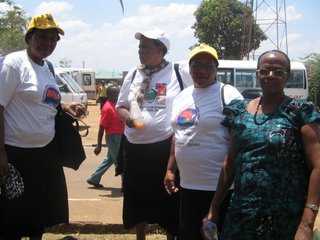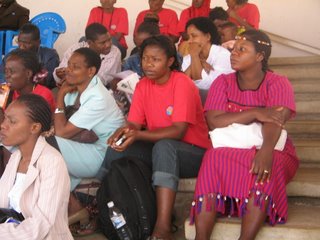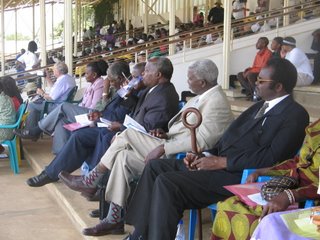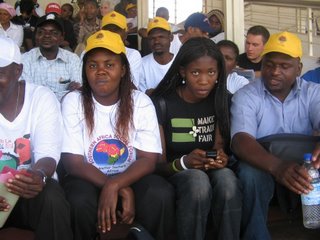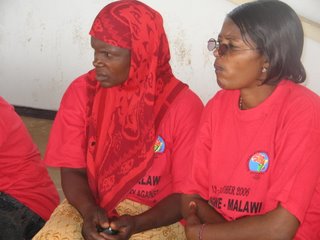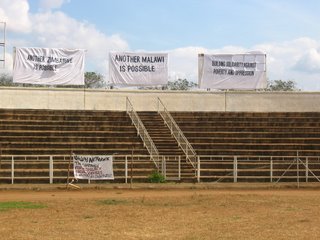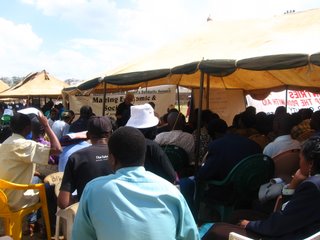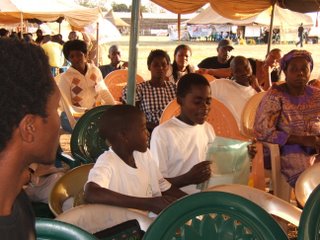By Brenda Zulu
I woke up at 04:30 in the morning to prepare for my 06:00 hours bus trip to Malawi. This was already enough pain for me since I had just arrived from another trip from the Copperbelt the previous day.
When I arrived at the Zambia Council for Social Development (ZCSD) offices in town, I found few people had already arrived. By the time the hour was six many people had arrived.
A bus came and all of us quickly found seats and were ready to go. To most of our surprises we were told that we would leave in the next bus. The first bus left with those people who were in groups such as artists. For those of us who remained we waited for members from the NGOCC.
To our surprise we were no longer leaving with the hired bus but had to leave with public transport because the 10 people who were supposed to leave with us from NGOCC were suddenly asked to stay by their Chairperson. She was allegedly reported to have not liked the people who were chosen to attend the Southern Africa Social Forum (SASF).
Members of the Zambia Social Forum were amazed at the Chairpersons decision of not to like those who had been listed to participate in the social forum to be held in Malawi. Was the Chairperson in order?
Zambia Social Forum has never succeeded in creating partnerships especially when it comes to social forum activities. It tried to hold the it’s national social forum together with the Civil Society Day and because of elections date issues and logistics which the ZSF did not have all this was a failure. Now again this partnership in having a joint trip with NGOCC did not work for the Zambia Social Forum because the chairperson had pulled out at the eleventh hour.
Already a bus had left and it had carried one NGOCC representative. I wonder how this person will explain himself to the Chairperson.
As someone who had contributed to writing the proposal to enable some Zambians participate in the social forum I was surprised to hear that we had hired buses to travel to Malawi unlike using our original plan where we were to pay for seats on the Zambia Malawi bus.
Being ready at six we were only able to start off from Lusaka at around 11:45 hours as we got on a bus to Chipata hoping we would find transport at the Zambia/ Malawi border. As we reached Chipata we were told that we would get stranded if we took a risk to go to the boarder as it was already late for us to find transport.
So we waited for the Zambia/Malawi bus where some of our colleagues in our group had to stand till we reached Lilongwe. On arrival in Lilongwe we booked a mini bus which took us to where we had been booked at Chilambula lodge. Malawi Police patrols gave us an escort up the lodge and we reached safe and sound.
Inputs from the NGOCC former Chairperson and the Executive Director
19/12/2006
Dear all,
Thankyou for your contribution. I have added you inputs to the Blog check http://sasfnews2003.blogspot.com/
For transparency's sake i have copied this e-mail to the Zambia Social Forum mailing list because this subject matter was discussed in the SASF/MALAWI post meeting. Minutes should be there to show what transpired.
regards
Brenda Zulu
http://brendait.blogspot.com/
Engwase Mwale
Good morning Ms Muyoyeta,
The SASF story attributed to you makes very sad reading and in this time and era when information is readily available, it is indeed of concern that even journalists would fall in this predicament. All we can request is to meet with Brenda to put this issue in its right context, like you have already done, so that the truth is known by everyone.
These are issues of accountability and you are right to demand for retraction as we arrange to meet with Brenda.
Keep well for now.
EngwaseLucy Muyoyeta
Dear Brenda,
I am afraid you are wrong because there was nothing factual about what you wrote instead it was just malicious defamation of my character. I too know my rights and will accept nothing short of a full retraction of what you said because it is untrue. I have no interest in contributing to a travelogue that seems to serve little purpose except peddle untruths and sensationalise for nothing.
The facts as they stand is that with the full backing of NGOCC 's regulation I withdrew that trip for the following reasons.
1. NGOCCs regulations stipulate that new activities that are not part of the year's approved plans and budget require board approval before they are undertaken. Fact is that there was no board approval for this activity which was a new one and not part of prior approved activities.
2. There was a request for huge amounts of cash to be drawn for the people travelling. To stem abuse NGOCC procedures do not allow for huge amounts of cash to be drawn. You see unlike others, we apply due diligence and care in use of public funds.
3. Before anyone travels to represent NGOCC outside the country, the Executive Director and Chairperson working in consultation with each other must approve the people to travel using set criteria. In this case, I as chairperson was not consulted.
You will see from the above rather than the pettiness you attributed to me in your article, it was professionalism and due care for public resources that guided my actions in this case as in all my day to day dealings.
For your own information, this matter was brought before the just ended NGOCC General Assembly ( the Supreme Policy and Decision making body of NGOCC) and the Executive Director of NGOCC asked that I make no response for she takes full responsibility for the lapses that occurred.
So, I make no apologies for the action I took and request that you retract your article because the facts speak for themselves. I have copied this Email to the NGOCC Executive Director since she is mentioned.
Lucy Muyoyetabrenda zulu
Dear Lucy Muyoyeta,
As a Journalist i have a right to write in fact and substance and would just welcome your input to my travelogue to Malawi.
Since i am the one who manages content on the SASF News Blog, i will add your contribution on the blog and will avail you the website.
Regards
Brenda Zulu
http://brendait.blogspot.com/
http://sasfnews2003.blogspot.com/
Dear Brenda,
The article as mentioned above, which you did for the Southern Africa Social Forum (SASF) News has just been brought to my attention.
I am shocked that the most basic tenets of journalism was ignored by you. You chose to publish very damaging allegations about the chairperson of NGOCC (who at the time was myself) without even bothering to check with me and hearing my side of the story.
I would be grateful to hear from you on this matter so that a retraction is made and the whole world (for indeed it is the whole world because the said article is on the Internet) can get to know what indeed transpired in this case.
Thank you
Lucy Muyoyeta
Labels: malawi, sasf, social forum, travelogue




